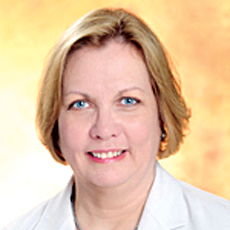
The number of older adults and adults with disabilities in the United States is rapidly increasing. The Institute of Medicine estimates that the number of adults with impairments or disabilities could grow from 14 million in 2007 to more than 28 million in 2030, and the 2012 U.S. Census reports that 1 in 5 adults in the U.S. have some type of disability.
With these compelling statistics, individuals looking for rewarding healthcare careers in a competitive job market should be filling all available seats in programs offering long-term care education. However, the reality is flat or declining enrollments in some gerontology programs and low numbers of graduates specializing in aging in social work programs. Also, the number of new candidates for nursing home administrator licensure has remained flat in recent years.
As the Affordable Care Act and other legislation focus attention on post-acute care and care coordination services for older and disabled adults, the long-term care field will have a larger set of career opportunities, and even more shortages of trained professionals.
Individuals with a passion for long-term care careers have always existed, but the opportunities for their training are not always apparent.
Many healthcare degree programs focus on career opportunities in hospitals, group practices and other administrative services, and do not require training in working with older or disabled adults as part of their accreditation or certification process.
Licensure for many health professionals requires minimal knowledge of aging theory and supportive services. Faculty frequently do not have degrees, certifications, licenses or work experience in long-term care, so students only occasionally hear of career opportunities.
Internships or practicums that may be required for healthcare professional licensure may offer limited long-term care sites if the faculty supervisors have few contacts in the field.
How can this situation be changed?
Long-term care service providers have a unique opportunity to form partnerships with educational institutions, offer internships and training to students and promote long-term care accreditation of their programs to interested faculty. Licensed professionals should open discussions with healthcare accreditation and licensing boards to raise awareness of the need for administrators and clinicians with long-term care expertise.
The student population now encompasses adult learners, career changers and returning veterans, and they will need long-term care providers willing to hire them and offer flexible work hours while they obtain necessary credentials. Professional associations need to develop supportive programs for new long-term care professionals, and promote loan forgiveness as a way to address financial barriers to obtaining necessary training.
Entrepreneurial opportunities will increase with new service delivery programs, and business start-up programs and incubators are poised to assist individuals with obtaining small business plan training and funding.
These workforce development initiatives are essential if we are to meet the needs of a growing number of adults needing quality long-term care services.
Mary Helen McSweeney-Feld, Ph.D., is an Associate Professor and Research Associate, Center for Productive Aging, at Towson University in Towson, MD. She is active in long-term care organizations and lead editor for “Dimensions of Long-Term Care Management: An Introduction,” published by Health Administration Press.




